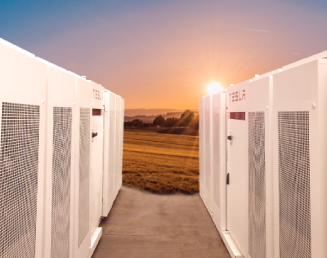
Nov . 13, 2024 04:40 Back to list
portable energy storage
The Rise of Portable Energy Storage A Solution for a Sustainable Future
In an era where energy consumption is at an all-time high, the need for efficient, portable energy storage solutions has never been more pressing. As society becomes increasingly reliant on electronic devices, electric vehicles, and renewable energy sources, the significance of portable energy storage systems grows. These systems not only provide convenience and mobility but also play a crucial role in promoting sustainability and reducing our carbon footprint.
Understanding Portable Energy Storage
Portable energy storage devices are technologies designed to store energy for later use. They come in various forms, including batteries, power banks, and energy storage systems designed for off-grid applications. The most common portable energy storage device is the lithium-ion battery, which is widely used in everything from smartphones and laptops to electric vehicles and solar energy systems. The versatility of these devices makes them indispensable in today's tech-centric world.
Key Benefits of Portable Energy Storage
1. Convenience and Mobility One of the primary advantages of portable energy storage is the ability to access power wherever and whenever needed. For outdoor enthusiasts, campers, and travelers, portable power banks and solar generators provide essential energy without relying on grid power. This mobility allows individuals to stay connected, charge devices, and power appliances regardless of location.
2. Supporting Renewable Energy Integration As the world shifts towards cleaner energy sources, portable energy storage systems are vital in integrating renewable energy into daily life. For instance, solar-powered devices can store energy during sunny days and supply power at night, ensuring a continuous energy supply. This capability not only enhances the reliability of renewable energy but also reduces dependence on fossil fuels.
3. Emergency Preparedness Natural disasters can disrupt power supply, leaving communities without electricity for extended periods. Portable energy storage devices can serve as a backup power source during emergencies. By charging these devices in advance, families can ensure they have access to essential power for lighting, communication, and medical devices when grid power is unavailable.
4. Cost-Effectiveness While the initial investment in portable energy storage may seem high, these devices can lead to significant savings in the long run. By maximizing the use of renewable energy and reducing reliance on traditional energy sources, individuals and businesses can see a decrease in their energy bills. Additionally, many portable energy storage solutions are equipped with smart technology, allowing users to monitor usage and optimize their energy consumption.
portable energy storage

Innovations in Portable Energy Storage
The portable energy storage market is witnessing rapid advancements. Manufacturers are continuously innovating to enhance the efficiency, capacity, and lifespan of these devices. For instance, the development of solid-state batteries promises higher energy densities and faster charging times compared to traditional lithium-ion batteries. Moreover, the emergence of biodegradable materials in battery production aims to address environmental concerns associated with battery disposal.
Furthermore, the integration of artificial intelligence (AI) and the Internet of Things (IoT) in portable energy storage systems allows for smarter energy management. Users can track their energy use in real-time, predict power needs, and receive alerts for optimizing performance.
The Future of Portable Energy Storage
As the demand for sustainable energy solutions grows, the portable energy storage market is expected to expand significantly. The rise of electric vehicles, an increasing focus on sustainable living, and the growing popularity of outdoor activities will drive innovation and adoption. Furthermore, investments in research and development will likely yield even more efficient and environmentally friendly energy storage technologies.
Organizations and governments are recognizing the importance of portable energy storage in achieving sustainability goals. Incentivizing the use of such technologies through subsidies, tax incentives, and educational programs can accelerate the transition toward a more sustainable energy landscape.
Conclusion
In conclusion, portable energy storage is not just a convenient solution for our tech-driven lifestyles; it is a vital component in the transition to a sustainable future. With ongoing innovations and growing awareness of the importance of renewable energy, portable energy storage systems will play an increasingly significant role in how we consume and manage energy. By embracing these technologies, we can enhance our quality of life while protecting the planet for future generations.
-
Smart Energy Management System: Control & Monitor Usage
NewsAug.18,2025
-
EMS for Advanced Energy Management & Storage
NewsAug.17,2025
-
Boost Efficiency with Smart EMS Energy Management Systems
NewsAug.16,2025
-
Energy Management System (EMS): Optimize & Save Energy Costs
NewsAug.15,2025
-
Intelligent Energy Management: Save & Control Your Power
NewsAug.14,2025
-
Optimize Energy with Advanced Management Systems
NewsAug.13,2025


